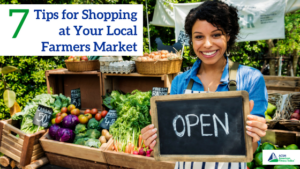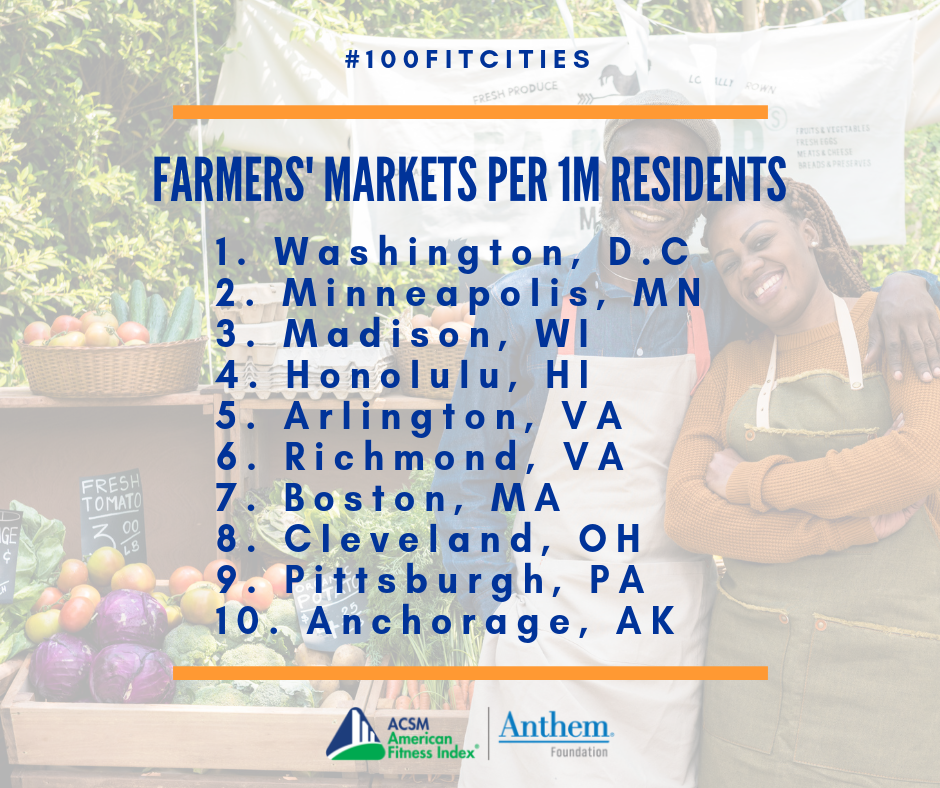
There are nearly 9,000 farmers markets currently in operation across the United States. With offerings ranging from fresh fruits and vegetables to locally raised meats to fresh cut flowers and more, your local farmers market plays a huge role in both the accessibility of nourishing food and the stimulation of the local economy.
August 4-10, 2019 is National Farmers Market Week, and it’s the perfect time to explore your local market. To get the most out of your experience, remember these seven easy tips:
- Plan out your trip. Make sure you know the location of the market and its hours. Look for details about public transportation, bike racks and parking to make sure that your commute will be smooth. Additionally, many farmers markets welcome pets, but check the rules before you bring your furry friends along. Looking for a market near you? You can search the USDA’s National Farmers Market Directory.
- Pack reusable bags to carry your fresh finds. Being green is in! Use cloth or recyclable paper bags instead of plastic.
- Make sure you have enough cash. More and more farmers market vendors are accepting credit cards these days, but many are not. Bring plenty of cash! It’s also thoughtful to bring small bills. You don’t want to wipe out a vendor’s change when you pay for $1 worth of produce with a $20.
- Arrive early! The freshest produce and the most desirable items will go to those who arrive right when the market opens. On the flip side of this, you may be able to get more deals if you’re shopping right before closing time, since vendors will want to sell rather than carrying products home. But a fair warning: if you’re shopping for something specific, it may have sold out if you wait too long to get there!
- Browse before you buy. Many of the vendors’ booths will have the same or similar produce and products. Look at all the options and compare quality, quantity and price before making your decisions.
- Strike up a conversation! Ask the vendors about their farms or their process for creating the products that they sell. Not only will you have learned more about your local area, but you may make a new friend as well!
- Have a plan for your produce. Since farmers market vendors are selling straight from their farms or fields, they will have a shorter shelf life than the produce items that you will find at a super market. There’s nothing sadder than seeing beautiful, nourishing food go to waste because you brought home more than you could eat. You may want to cook in bulk, freeze or can produce items. Otherwise, plan to buy only what you will eat in the following few days.
Now it’s time to get out and explore your local farmers market! Enjoy the nutritious benefits while supporting growers in your hometown.



